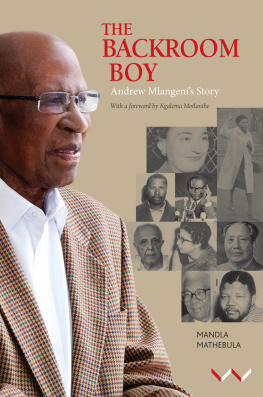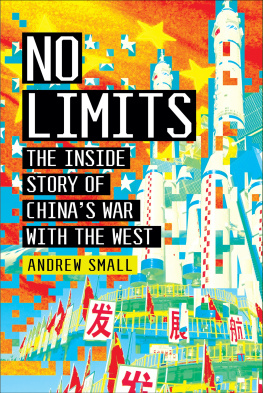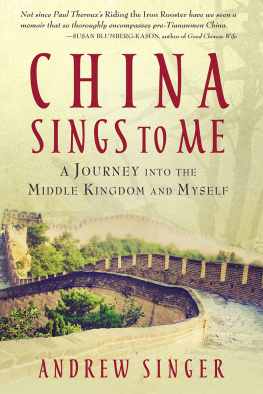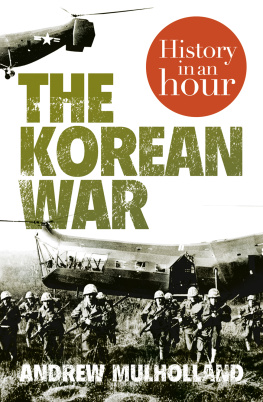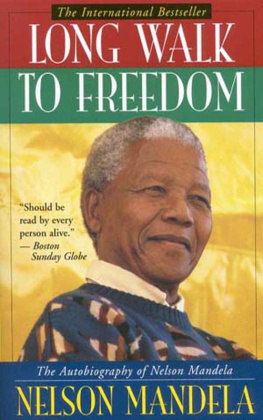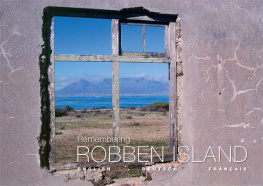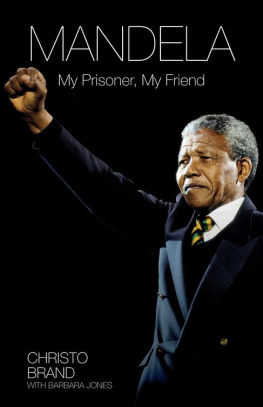THE BACKROOM BOY
Andrew Mlangenis Story
MANDLA MATHEBULA
Published in South Africa by:
Wits University Press
1 Jan Smuts Avenue
Johannesburg
www.witspress.co.za
and
June and Andrew Mlangeni Foundation
Waverley Office Park
125 Corlett Drive
Johannesburg
Text: June and Andrew Mlangeni Foundation 2017
Images: Individual copyright holders
Print 978-1-77614-086-2
EPUB (Rest of world) 978-1-77614-089-3
All rights reserved. No part of this publication may be reproduced, stored in a retrieval system, or transmitted in any form or by any means, electronic, mechanical, photocopying, recording or otherwise, without the written permission of the publisher, except in accordance with the provisions of the Copyright Act, Act 98 of 1978.
The June and Andrew Mlangeni Foundation acknowledges with thanks those who granted permission for the use of the small photographs on the cover: the Robben Island Mayibuye Archives, University of the Western Cape; the Nelson Mandela Foundation; Shikaya; Lionel Shapiro and the South African Communist Party (SACP). Efforts have been made to trace copyright owners but the Foundation will welcome any further information relating to these photographs.
Researcher: Patrick Baloyi
History adviser: Luli Callinicos
Editor and project manager: Monica Seeber
Cover design and layout by Hothouse South Africa
Cover photograph of Andrew Mlangeni: Avo photography
Printed by Creda Communications
Contents
Acknowledgements
The Trustees would like to express their gratitude to the many organisations and people who saw us through this book. We thank all those who provided support, talked things over, read, wrote, offered comments, allowed the authors to quote their remarks and assisted in the editing, proofreading and design.
We thank Ntate, Seaparankwe, Isithwalwandwe Dr Andrew Mokete Mlangeni for enabling us to publish this book. Above all we thank his family, who supported and encouraged the Foundation in this endeavour.
It was a long and difficult journey for the Foundation.
Thanks to all the sponsors and in particular the following, without whom this book would not have found its way to the press:
Airports Company of South Africa (ACSA)
Eskom Holdings
Forensic Data Analysts (FDA);
Industrial Development Corporation of South Africa Limited (IDC)
Khauleza IT Solutions
Passenger Rail Agency of South Africa (PRASA)
Transnet Group
Thanks to managing trustee Sello Rasethaba, who ensured the coordination of the project and timeous intervention when there were obstacles.
Last but not least, the Foundation begs forgiveness of all those who have been with us over the years and whose names we have failed to mention.
The Honourable, Prof Hlengiwe Mkhize, MP
Chairperson
THE JUNE AND ANDREW MLANGENI FOUNDATION
Foreword
The publication of Andrew Mlangenis biography could not have come at a more opportune moment in the historical process. Aptly titled The Backroom Boy: Andrew Mlangenis Story, this book shares with the reader the value of making a contribution to a peoples cause in a classically selfless fashion, without seeking the glory of limelight attendant to leadership positions. As post-apartheid South Africa evolves in both intended and unintended ways there is much in the process that warrants looking back to analogous moments in history.
Such an exercise is not only valuable in enabling us to avoid repeating mistakes of the past but serves to deepen our understanding of the possibilities of our human agency as individuals and at a collective level. Thus we get to understand that although thrown into historically given circumstances, we equally have the inherent power to change matters, to throw down the gauntlet to destiny in whatever ways are humanly possible.
This makes sharing the lesson-laden, politically-charged life of figures such as Om Andrew (all elderly stalwarts of the struggle are affectionately called Oom, uncle, Om for short) all the more necessary, if not indispensable. After the publication of the biographies of Om Andrews contemporaries Nelson Mandela, Oliver Tambo, Walter Sisulu, Ahmed Kathrada, Dennis Goldberg, Mike Dingake and others who have, incidentally, influenced his political development, it is only legitimate to expect Om Andrew to also claim his place in the exalted genre of South Africas expanding political biography. This amounts to the writing of history, our history, by documenting the lives of the leading individuals during the freedom struggle. It does not mean that history is the product of individual genius or of sacrifice alone. On the contrary, it affirms the importance of individuals within the tapestry of collective human reaction to a given historical situation. Like those of each of his contemporaries, Om Andrews life is but one of the numerous strands woven into the South African historical narrative.
Through reading a book such as Om Andrews biography we appreciate that, now and again, nations fall into a sore need for some hard-nosed historical lessons as they try to pull through strangulating challenges thrown up by periods of sociopolitical misfortune. In South Africas case where else to turn but the glorious history of the struggle for justice and equality whose mobilising philosophy constitutes the framework of our shared vision today?
The struggle for the entrenchment of a united, democratic, non-racial, non-sexist and just society is not cast in certain terms and will, inexorably, suffer setbacks in the cut and thrust of political existence.
In such moments it helps to look back to our troubled past to see how those before us rose to the challenges of the day. In The Backroom Boy: Andrew Mlangenis Story, the case is clear from even a casual reading of his life Om Andrew evolved a temperament equal to the challenges of the day. A compelling view is emerging of an individual committed to the struggle of his people, acting to make a difference in concert with and under the leadership of his comrades and his people.
Om Andrew is among this crop of individuals moulded by their social circumstances who have in turn acted to change given circumstances, within the parameters of the collectively shared vision.
What stands out with exceptional distinction in Om Andrews life is his personal conduct, discipline, a commendable self-respect and his exemplary sense of purpose. That not much about the life of this remarkable individual is known, at least on the scale of his contemporaries, is probably thanks to his modesty. At least he has largely been an unknown quantity despite the fact that his political biography starts early on in his life at a secondary school level with such luminaries as OR Tambo, Joe Matthews and Duma Nokwe, and that his political maturity owes much to Ruth First, among others.
Consequently, the time is right for a book to be written on the life and indeed contribution of one of the most self-effacing, humble and yet enthusiastically committed souls to the moral struggle for dignity, unity, justice, fairness and equality among human beings.
Sadly, among the young generation of South Africans very few would have heard the name Andrew Mlangeni, despite the fact that in addition to the 26 years and four months of apartheid incarceration Om Andrew has also served the democratic Parliament for more than two decades.

